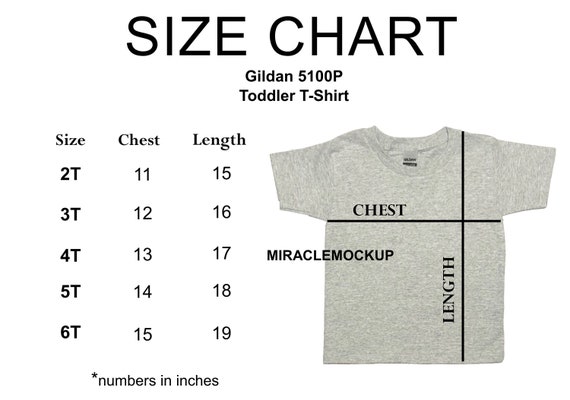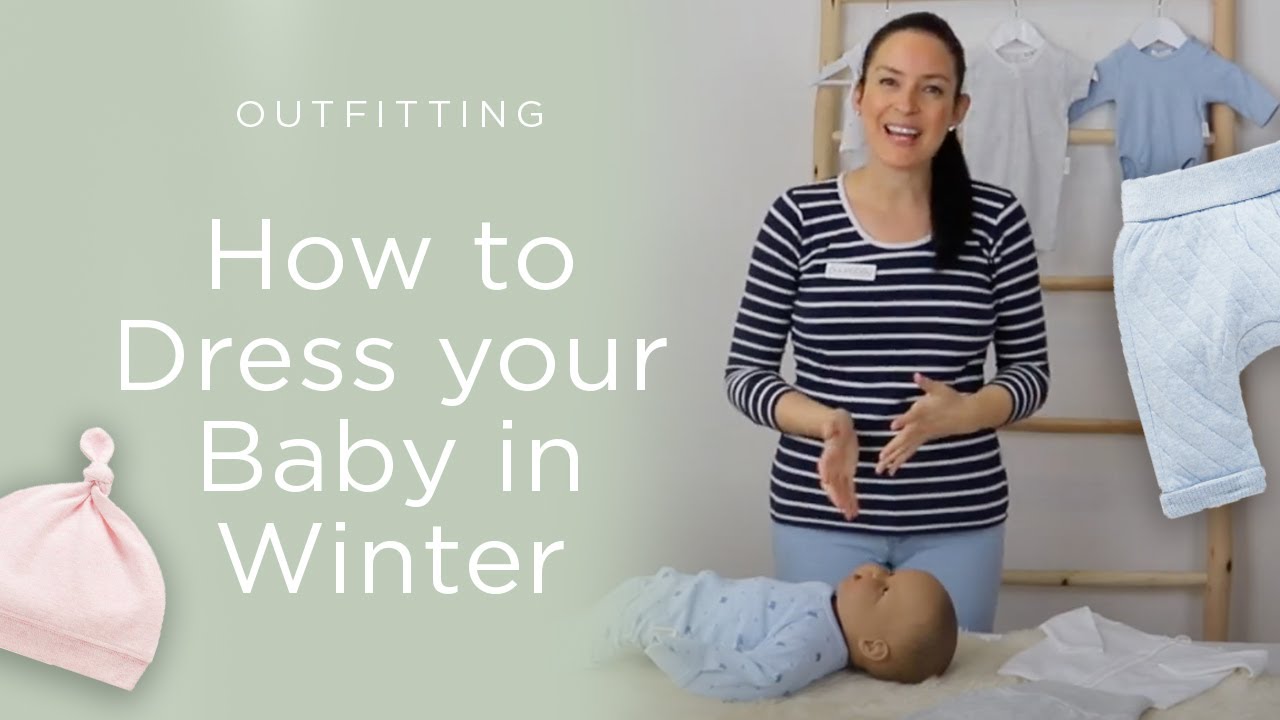4T shirt dimensions typically refer to toddler sizes, which fit children aged 4 years. Measurements usually include a chest width of 12-13 inches and a length of 15-16 inches.
Understanding T-shirt dimensions is essential for finding the right fit for your child. Parents often struggle with choosing the correct size due to varying brand standards. Knowing the exact measurements helps avoid returns and ensures comfort. Each T-shirt brand may have its unique sizing chart, making it important to compare dimensions before purchasing.
Proper sizing not only enhances comfort but also boosts confidence in your child’s appearance. This guide will clarify 4T dimensions and help you make informed decisions when selecting T-shirts for your little ones.
Table of Contents

Credit: carriageboutique.com
Decoding 4t Shirt Sizes
Understanding 4T shirt sizes helps parents choose the right fit for their kids. The size 4T is common for toddlers. Knowing the dimensions can save time and money. Let’s break down what 4T sizes mean.
Age And Size Correlation
4T sizes are generally for children aged 4 years. Each brand may vary slightly in dimensions. Here are some typical measurements:
| Measurement | Inches |
|---|---|
| Chest Width | 24 |
| Waist Width | 22 |
| Length | 16.5 |
These dimensions help ensure a comfortable fit. Kids grow quickly, so check sizes regularly. Parents should consider both height and weight.
4t Vs. 4: Spotting The Difference
Many parents confuse 4T with size 4. Both sizes are similar but designed for different age groups. Here are the key differences:
- 4T: Tailored for toddlers, usually with room for diapers.
- Size 4: Made for children who are fully potty trained.
Size 4 often has a slimmer fit. 4T provides extra space in the waist and hips. Always check the brand’s size chart for accuracy.
Understanding these details ensures kids feel comfortable and confident in their clothes.
Key Measurements For 4t Shirts
Understanding the right dimensions for 4T shirts is essential. Accurate measurements ensure comfort and proper fit for your child. The two main areas to focus on are the chest and waist, and the length and sleeves.
Chest And Waist Standards
Chest and waist measurements are critical for a good fit. Here are the standard measurements for 4T shirts:
| Measurement | Standard Size (inches) |
|---|---|
| Chest | 22-23 |
| Waist | 20-21 |
Measuring the chest and waist helps you choose the right size. Measure around the fullest part of the chest. For the waist, measure around the natural waistline.
Length And Sleeve Considerations
The length and sleeve measurements also impact fit. Here are the typical measurements:
- Shirt Length: 15-16 inches
- Sleeve Length: 13-14 inches
For shirt length, measure from the highest point of the shoulder to the hem. For sleeve length, measure from the shoulder seam to the wrist. These dimensions ensure your child has room to move comfortably.
Size Variations Across Brands
Understanding size variations is crucial for finding the perfect fit. Different brands often have unique sizing standards. A T-shirt that fits well in one brand might not fit the same in another. This can lead to confusion and frustration for shoppers.
Brand Sizing Discrepancies
Size discrepancies can occur for various reasons. Here are some common factors:
- Manufacturing processes differ between brands.
- Target demographics can influence sizing choices.
- Geographical factors may affect size standards.
Here’s a quick comparison of sizes from popular brands:
| Brand | Small (S) | Medium (M) | Large (L) |
|---|---|---|---|
| Brand A | 34-36″ | 38-40″ | 42-44″ |
| Brand B | 36-38″ | 40-42″ | 44-46″ |
| Brand C | 32-34″ | 36-38″ | 40-42″ |
Importance Of Checking Size Charts
Always check the size chart before making a purchase. Size charts provide accurate measurements for each brand. Here’s why checking them is vital:
- Prevents returns due to wrong sizes.
- Ensures a better fit for your body type.
- Saves time and money in the long run.
Remember, sizes can vary significantly. Checking size charts can help you make informed decisions.

Credit: www.etsy.com
Material Impact On 4t Shirt Fit
The material of a 4T shirt plays a crucial role in its fit. Different fabrics can affect comfort and style. Understanding how each material behaves helps in choosing the right shirt for your child.
Stretchability Of Fabrics
Stretchy fabrics make shirts easier to wear. Kids need movement. Here are common stretchable materials:
- Spandex: Offers excellent elasticity.
- Cotton blends: Provides comfort with some stretch.
- Polyester: Lightweight and stretchy, ideal for active wear.
Choose shirts with stretch for active kids. This allows freedom of movement during playtime.
Shrinkage Factors To Consider
Shrinkage can change how a shirt fits after washing. Here are factors to keep in mind:
| Fabric Type | Shrinkage Potential |
|---|---|
| Cotton | High |
| Polyester | Low |
| Blends | Medium |
Always check washing instructions. Avoid hot water for cotton shirts. This helps keep the fit true to size.
Understanding these material aspects ensures the perfect fit for your child’s 4T shirt.
International Sizing Comparisons
Understanding international sizing is essential for buying 4T shirts. Different regions have different size standards. Knowing these can help you find the perfect fit for your child.
Us Vs. Eu Vs. Uk 4t Sizes
Here’s a quick comparison of 4T sizes across the US, EU, and UK:
| Region | Size | Chest Width (inches) | Height (inches) |
|---|---|---|---|
| US | 4T | 22 | 39-41 |
| EU | 104 | 22 | 39-41 |
| UK | 4-5 Years | 22 | 39-41 |
As shown above, the chest width remains consistent. However, the size label differs by region. This makes it crucial to check size charts before buying.
Converting Sizes For Global Brands
Converting sizes can be tricky. Use the following tips to simplify the process:
- Check Size Charts: Always refer to the brand’s size chart.
- Measure Your Child: Use a measuring tape for accurate measurements.
- Look for Reviews: Read customer feedback on sizing.
- Know Brand Differences: Sizes may vary between brands.
For example, a 4T in the US may fit differently in a European brand. Always double-check before making a purchase.
4t Shirts For Different Body Types
Choosing the right size for kids can be tricky. 4T shirts come in various fits. Understanding these fits helps in selecting the best options. This section focuses on the body types commonly found in children. Here, we will explore shirts for stocky builds and slimmer figures.
Accommodating Stocky Builds
Stocky builds often need shirts that fit well without being tight. Look for these features:
- Wider cut for extra room.
- Shorter sleeves to avoid tightness.
- Soft, stretchy fabrics for comfort.
Check out this table for measurements:
| Measurement | Stocky Build (4T) |
|---|---|
| Chest Width | 12-14 inches |
| Length | 15-17 inches |
These shirts provide room for movement. They also allow for layering during colder months.
Options For Slimmer Figures
For slimmer figures, shirts should fit snugly but comfortably. Consider these options:
- Tailored fits that hug the body.
- Longer sleeves for a stylish look.
- Breathable materials for all-day wear.
Refer to this table for suitable measurements:
| Measurement | Slender Build (4T) |
|---|---|
| Chest Width | 10-12 inches |
| Length | 14-16 inches |
These shirts create a sleek appearance. They work well for playdates or family outings.
Layering With 4t Shirts
Layering with 4T shirts can enhance your child’s wardrobe. It adds style and warmth. Mixing and matching creates fun looks for any occasion.
Choosing The Right Outerwear
Outerwear plays a key role in layering. Here are some popular options:
- Jackets: Denim or lightweight jackets work well.
- Cardigans: Soft cardigans add comfort and warmth.
- Vests: Great for extra warmth without bulk.
Choose outerwear that fits well over the 4T shirt. Look for breathable fabrics. This ensures comfort during playtime.
Mix And Match Layering Techniques
Mixing and matching layers offers endless possibilities. Consider these techniques:
- Pair a long-sleeve 4T shirt with a vest.
- Layer a T-shirt under a cozy sweater.
- Use a lightweight jacket over a printed 4T shirt.
Experiment with colors and patterns. This creates unique outfits. Remember to keep comfort a priority.
| Layer Type | Best Uses |
|---|---|
| Long-Sleeve T-Shirt | Cooler days, under sweaters |
| Short-Sleeve T-Shirt | Layered under jackets |
| Hoodies | Casual outings, playtime |
Layering can be fun. Make it a game to find different combinations. Your child will enjoy dressing up each day.

Credit: sharkzen.com
Seasonal Considerations For 4t
Choosing the right 4T shirts involves understanding seasonal needs. Different seasons require different fabrics, fits, and styles. Keeping kids comfortable is essential. Here’s how to adapt 4T wardrobes for winter and summer.
Winterizing 4t Wardrobes
Winter requires warm clothing. Here are tips for winterizing 4T wardrobes:
- Choose long-sleeve shirts for added warmth.
- Layer with sweaters or cardigans.
- Look for thermal fabrics that trap heat.
Consider the following table for recommended winter fabrics:
| Fabric Type | Benefits |
|---|---|
| Fleece | Soft, warm, and lightweight. |
| Wool | Excellent insulation and moisture-wicking. |
| Cotton blends | Comfortable and breathable. |
Summer Fabrics And Fits
Summer calls for lighter, breathable options. Here’s how to choose summer 4T shirts:
- Select short sleeves for comfort.
- Look for lightweight fabrics that wick moisture.
- Choose looser fits for airflow.
Consider these popular summer fabrics:
| Fabric Type | Benefits |
|---|---|
| Cotton | Soft, breathable, and easy to wash. |
| Linen | Very light and highly breathable. |
| Rayon | Soft with excellent moisture absorption. |
Prioritize comfort and style for those sunny days. Keep your little ones happy with the right fit and fabric.
Accessorizing 4t Outfits
Accessorizing adds charm to 4T outfits. It enhances your child’s look. The right accessories can make any outfit pop. Let’s explore some fun ways to accessorize.
Complementing With Scarves And Hats
Scarves and hats can transform a basic outfit. Here are some ideas:
- Scarves: Light, colorful scarves add flair.
- Bucket hats: Perfect for sunny days.
- Beanies: Great for cooler weather.
Mix and match colors. Choose patterns that complement the shirt. Avoid overwhelming designs. Simple accessories work best.
Footwear Pairing For Proportions
The right shoes complete the look. Choose footwear that matches the outfit style. Consider these options:
| Outfit Type | Footwear Suggestions |
|---|---|
| Casual T-shirt | Colorful sneakers or slip-ons |
| Dressy T-shirt | Leather loafers or cute flats |
| Outdoor Outfit | Sturdy sandals or hiking shoes |
Keep it fun and comfortable. Let your child help choose their favorite shoes. This makes getting dressed enjoyable.
Caring For 4t Shirts
Caring for 4T shirts ensures they last longer and stay looking great. Proper maintenance helps preserve their color and shape. Follow these simple tips for washing, drying, and stain removal.
Washing And Drying Best Practices
Washing 4T shirts correctly is essential. Here are some best practices:
- Use cold water for washing.
- Turn the shirt inside out to protect prints.
- Choose a gentle detergent.
- Avoid bleach as it can fade colors.
For drying:
- Air-dry shirts whenever possible.
- If using a dryer, select low heat.
- Remove shirts promptly to avoid wrinkles.
Stain Removal Tips
Stains can happen, especially with kids. Quick action helps remove them. Here are effective tips:
| Stain Type | Removal Method |
|---|---|
| Food | Rinse with cold water. Apply a stain remover. |
| Grass | Use rubbing alcohol. Wash in cold water. |
| Ink | Apply hand sanitizer. Rinse and wash. |
| Paint | Let it dry. Scrape off excess. Wash. |
Always test stain removers on a hidden area. This prevents damage to the fabric. With these tips, 4T shirts will stay clean and vibrant.
Sustainable Choices In 4t Apparel
Choosing sustainable 4T apparel is important for our planet. Kids grow fast, so parents want durable and eco-friendly options. This section covers two key aspects: eco-friendly materials and supporting ethical brands.
Eco-friendly Materials
Eco-friendly materials are made from resources that are good for the environment. These fabrics help reduce pollution and waste. Here are some popular eco-friendly materials:
- Organic Cotton: Grown without harmful chemicals.
- Bamboo: Fast-growing and requires less water.
- Recycled Polyester: Made from plastic bottles.
- Hemp: Strong and grows with minimal pesticides.
Using these materials in 4T apparel reduces environmental impact. Look for clothing made from these fabrics for a greener choice.
Supporting Ethical Brands
Choosing brands that prioritize ethics is essential. Ethical brands focus on fair labor practices and sustainability. Here’s why it matters:
- They ensure safe working conditions for employees.
- They pay fair wages to workers.
- They minimize environmental impact.
- They promote transparency in their supply chains.
Check for brands that have certifications like Fair Trade or GOTS. Supporting these brands helps create a better world for future generations.
| Brand | Certification | Eco-Friendly Materials |
|---|---|---|
| Green Sprouts | GOTS | Organic Cotton |
| Frugi | Fair Trade | Organic Cotton, Recycled Materials |
| Patagonia | Fair Trade | Recycled Polyester |
Making sustainable choices in 4T apparel benefits children and the earth. Small decisions can lead to big changes.
Navigating Second-hand 4t Markets
Shopping for 4T shirts in second-hand markets can be fun and cost-effective. Many parents find great deals on quality items. Understanding sizes and checking for quality ensures you get the best value.
Buying And Selling Used Shirts
Buying and selling used 4T shirts is simple with the right tips. Here are some quick points to remember:
- Check local thrift stores and online marketplaces.
- Join community groups for parents to trade clothes.
- Use social media platforms to find deals.
When selling, take clear photos. Mention any flaws. Price fairly based on condition.
Quality Checkpoints For Pre-owned Clothes
Inspecting 4T shirts before buying is essential. Look for these quality checkpoints:
| Checkpoint | What to Look For |
|---|---|
| Fabric Condition | Check for tears, stains, or fading. |
| Stitching | Ensure seams are intact and not unraveling. |
| Size Tag | Confirm it is a true 4T size. |
| Brand Reputation | Opt for reputable brands known for durability. |
Following these checkpoints helps ensure you buy quality clothes. Enjoy the thrill of finding unique 4T shirts at great prices!
Future-proofing With Adjustable 4t Shirts
Adjustable 4T shirts offer a smart solution for growing kids. These designs adapt to changes in size. Parents save money by avoiding frequent replacements. Let’s explore how adjustable shirts provide value.
Innovative Designs For Growth
Many brands focus on creating innovative designs. These shirts often feature:
- Stretchable fabric for comfort
- Adjustable straps for a better fit
- Snap buttons for size flexibility
These features allow shirts to fit longer. Kids can wear them longer as they grow. Styles remain trendy and appealing.
Investing In Adjustable Features
Investing in adjustable features saves money over time. Here are some reasons why:
- Reduces the need for multiple sizes.
- Extends the lifespan of each shirt.
- Offers a better fit for various body types.
Parents appreciate the long-term value of these shirts. They are a wise choice for smart shopping.
| Feature | Benefit |
|---|---|
| Stretchable Fabric | Comfortable for active play |
| Adjustable Straps | Customizable fit as kids grow |
| Snap Buttons | Quick adjustments for size changes |
Frequently Asked Questions
What Are 4t Shirt Dimensions?
4T shirt dimensions typically include a chest measurement of 22-23 inches and a length of 15-16 inches.
How To Measure For 4t Shirts?
To measure for 4T shirts, use a flexible measuring tape around the chest and from shoulder to hem for length.
What Age Fits 4t Shirts?
4T shirts generally fit children aged 4 years, but sizes may vary depending on the brand and child’s growth.
Are 4t Shirts True To Size?
Most 4T shirts are true to size, but it’s best to check specific brand size charts for accuracy. “`
Conclusion
Understanding T-shirt dimensions is crucial for finding the perfect fit. Knowing your size can enhance comfort and style. Remember to measure accurately and consult sizing charts before purchasing. This knowledge ensures a better shopping experience and helps avoid returns. Choose wisely and wear your T-shirt with confidence!







